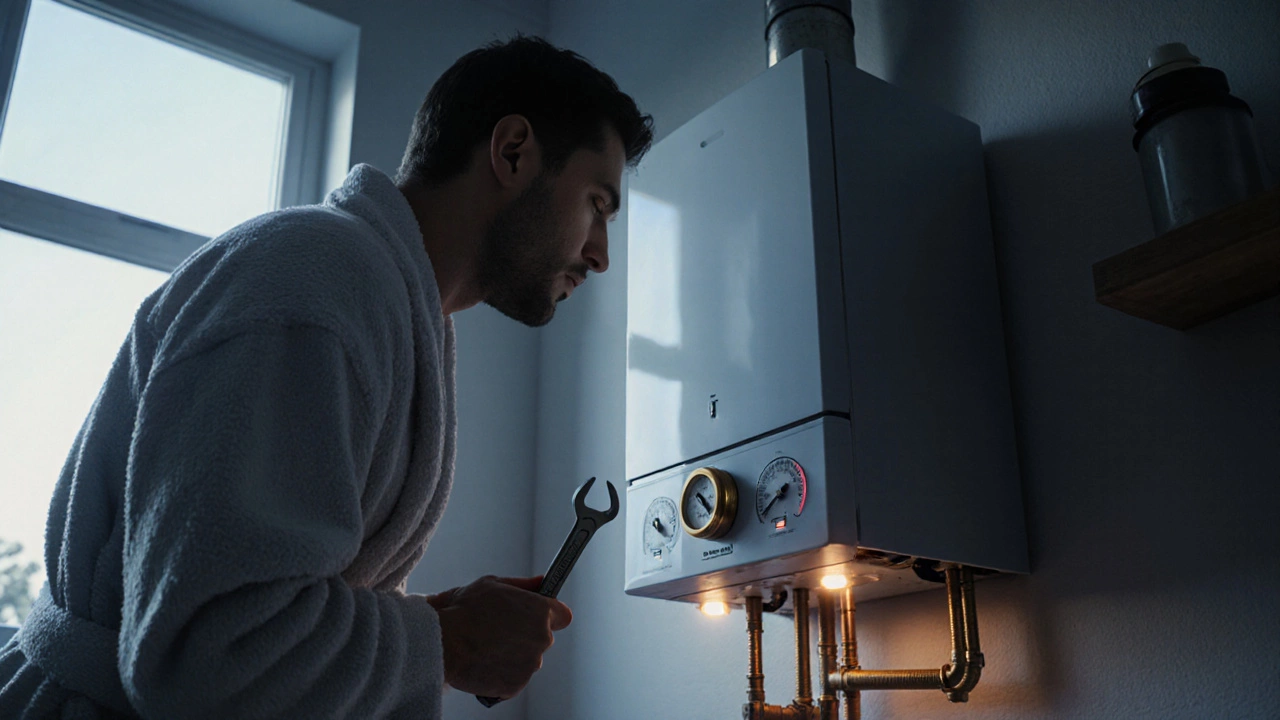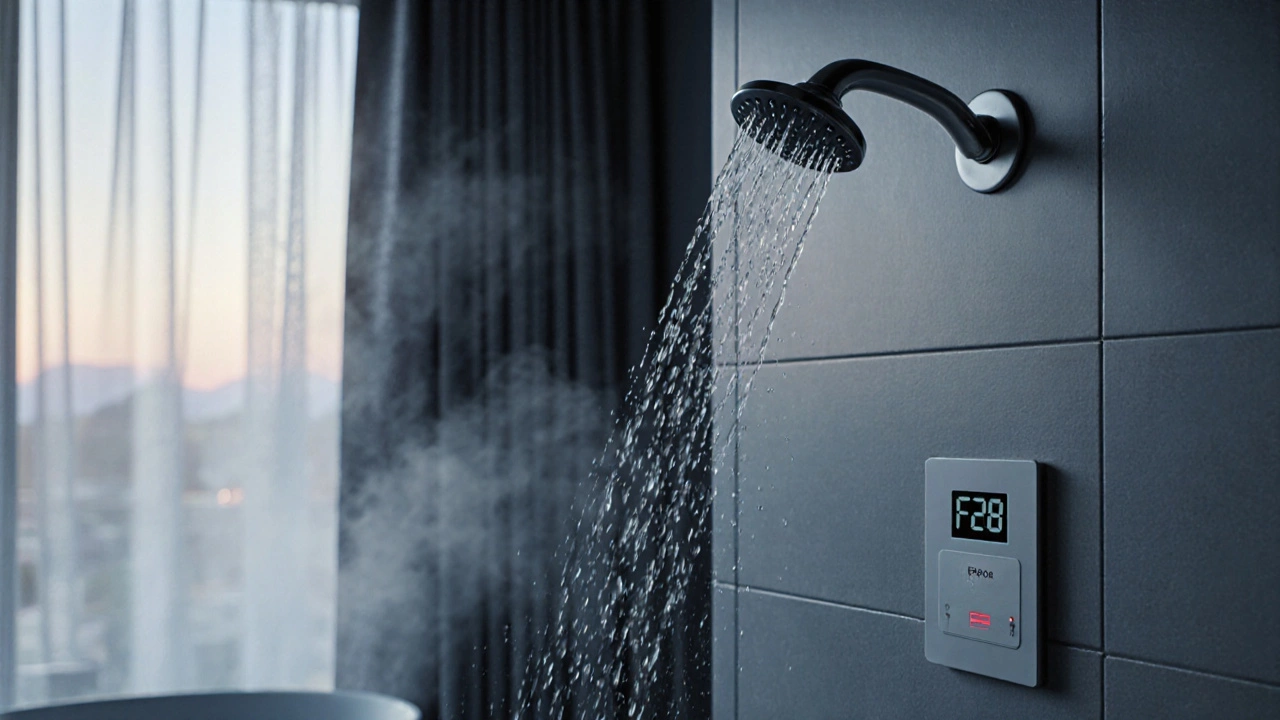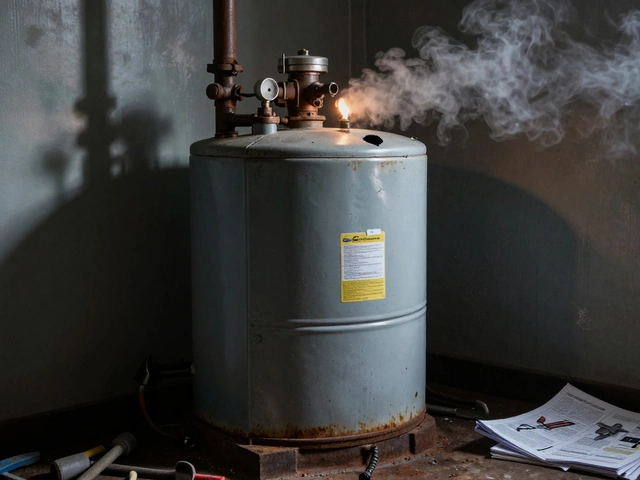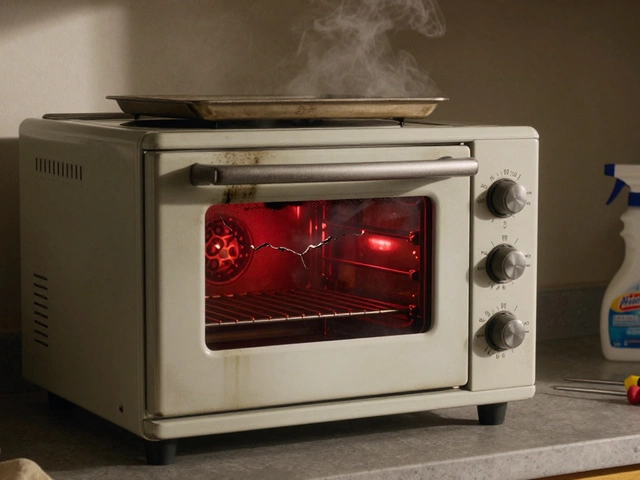Imagine coming home after a winter walk, only to find your radiators are freezing cold and the shower delivers nothing but a slow drip of lukewarm water. Panic sets in—your boiler’s down again. So, who are the people that brave dark basements, tangled pipes, and strange noises to get your heat back up and running? Spoiler: fixing boilers isn’t just a job for anyone with a spanner and a can-do attitude. It takes a specific type of person to tackle these tricky heating beasts, and knowing what makes them tick can save you a ton of headaches—and money.
The People Behind Boiler Repair: Who Are They Really?
When you hear “boiler engineer” or “heating technician,” you might picture someone in old, oil-stained overalls, torch in one hand, wrench in the other. Truth is, today’s boiler engineers are part detective, part engineer, and part crisis manager. Fixing a boiler isn’t about just flipping a few switches or tightening a loose pipe; it’s a serious mix of expertise, tenacity, and nerves of steel.
The best are registered with bodies like Gas Safe (UK) or RGI (Ireland). This isn’t just a badge—it’s the law for anyone repairing gas boilers. The UK alone saw more than 1.3 million Gas Safe checks requested in 2023, showing just how vital professional skills are. Boiler engineers undergo tough training, learning to diagnose faults, understand combustion, and keep up with changing regulations and boiler models.
So, what kind of person signs up for this? The curious minds who loved taking apart gadgets as kids? Sure, but more than that, they’re the folks who don’t flinch under pressure. Boilers break down in the dead of night, in the depths of winter, often when families are desperate. Patience and problem-solving are key. Boiler repair pros are usually very practical, but they need to be methodical—no cowboy shortcuts or guesswork are allowed when carbon monoxide is on the line.
Their days are never predictable. Some jobs are simple—fixing minor leaks or changing a faulty thermostat. Others are a marathon: tracing a stubborn fault or overhauling a twenty-year-old heat exchanger, all while explaining complex issues in plain, friendly terms to flustered homeowners. This level of communication can make or break their reputation; nobody wants a mystery invoice or a tech who grumbles instead of helping.
If you’re wondering about age or background, the field’s wide open. Apprenticeships for new engineers boomed after the pandemic, with more younger people training up, but there are veterans with decades in the game who can recognize a problem by sound or smell alone. The best boiler engineers keep their wits about them and never stop learning.
Boiler Engineers vs. Handymen: Why the Difference Matters
Ever thought, “My mate’s handy—he can probably fix the boiler”? Think twice. There’s a world of difference between someone who changes your lightbulbs and a properly qualified boiler repair specialist. Boilers deal with gas, pressure, and sometimes electricity. One misstep and you’re looking at leaks, dangerous fumes, or much worse.
Gas Safe (formerly CORGI) legally requires anyone working on gas appliances to be registered. The 2024 What Trades Are In Demand? survey shows heating engineers rank in the top five for technical training and complexity. Think of boiler engineers like pilots—they follow strict safety checks, with zero tolerance for shortcuts.
The average UK boiler has a lifespan of around 10-15 years—if you’re lucky. Trying to extend that with a quick fix from an untrained hand might void warranties or cause pricey breakdowns. Only certified engineers have legal access to spare parts from major brands; dodgy spares are a gamble that nobody should take.
Yes, there are similarities between heating engineers and plumbers, but plumbing covers pipes and water systems, not gas. Heating engineers blend plumbing know-how with advanced skills in gas safety, digital electronics, and sometimes even IT, when dealing with smart thermostats and modulating controls.
So, if you’re ever told, “Anyone can fix a boiler,” remember a 2023 survey by BOXT revealed over 40% of boiler-related home insurance claims were from incorrect DIY repair attempts. Leaving it to the pros isn’t a luxury—it’s basic household safety.

Skills and Qualities That Make a Boiler Engineer Stand Out
You’ve got to hand it to boiler engineers—they’re a rare breed, packing in skills from several trades and then some. The government-mandated qualifications, like NVQ (UK) or City & Guilds certificates, cover hard skills: gas regulation, combustion analysis, flue testing, and fault finding. But technical expertise is just half the battle.
Picture a tech clambering under floorboards, navigating dark closets, or even squeezing into a meter cupboard where most would panic. These folks keep cool. Their problem-solving is next-level. Modern boilers aren’t just metal boxes—they’re computerised, with circuit boards, error codes, and sometimes, built-in WiFi. Refusing to adapt means getting left behind, so top engineers constantly update their training. The Institution of Gas Engineers and Managers (IGEM) estimates at least 30% of boiler faults involve digital or control issues these days.
Strong communication’s essential. Explaining water pressure, expansion vessels, or condensate pipes to worried families isn’t in the textbooks, but it’s part of every good engineer’s day. Boiler breakdowns can be emotional, especially for vulnerable folk. That’s why empathy and trustworthiness go a long way. Many engineers work solo, meaning accountability and self-motivation are also vital. Diplomatic skills come in handy when explaining costs, replacement options, or even shutting down a condemned appliance for safety.
- Advanced pattern recognition: Not all faults throw up warning codes. The smell of soot, the sound of a clicking gas valve, or a dropping pressure gauge tells a hundred stories to a good engineer.
- Real-world tech know-how: From old Baxi and Vaillant units to condensing combi boilers that adjust with weather data, engineers must master a variety of brands.
- Safety-first approach: Every step, from testing for gas leaks to issuing safety certificates, is governed by strict protocols.
- Physical fitness: Lugging boilers and radiators, crawling into tight spaces, and carrying heavy tools is hard graft.
- Constantly learning: The UK Building Regulations update every couple of years, and new types of low-emission boilers keep landing on the market. Staying sharp is non-negotiable.
Still not sure what separates boiler engineers from the average Joe? Just look at the numbers: According to a 2023 survey by Screwfix, 89% of customers say they’d only trust a certified professional to touch their heating system. For good reason, too.
When Do You Need a Boiler Repair Expert? Tips, Myths, and What to Expect
Not every cold radiator or drop in water pressure is a five-alarm emergency, but when should you pick up the phone for a boiler engineer? The answer isn’t always obvious. Ignoring early warning signs can leave you—or someone else—with no heat at the worst time.
| Symptom | Possible Cause | Call a Pro? |
|---|---|---|
| Strange knocking/banging | Limescale build-up or air in system | Yes—needs flushing or inspection |
| Pilot light won’t stay lit | Thermocouple or gas supply issue | Absolutely—gas safety risk |
| No hot water/heating | Faulty diverter valve or pressure | Yes—may require new part |
| Error code on display | Range: electronics, pump, pressure, sensor | Yes—especially if manual says call engineer |
| Small leak/drip | Valve or seal failure | Yes, before it gets worse |
Tips for homeowners:
- Book a boiler service at least once a year. Annual maintenance is now a requirement for many warranties and keeps efficiency up.
- If you spot black marks near your boiler or vents, that’s a sign of improper combustion. Shut it off and call a Gas Safe engineer—don’t delay.
- Trust your senses. If you smell gas, phone the emergency number and turn off the boiler’s gas valve—never try to fix this yourself.
- Keep records. Engineers should always provide a service report—useful if you move house or have a warranty claim.
- Don’t fall for myths. Bleeding radiators may improve heat, but won’t fix a broken boiler. Topping up pressure is fine if you know what you’re doing, but recurring issues need a pro.
When you invite a boiler engineer into your home, expect professionalism. Legit pros will turn up on time, show you their Gas Safe card, and explain what they’re doing. They may run through a checklist, including pressure, visual checks for corrosion, testing safety controls, and inspecting the flue terminal outdoors.
If your boiler’s beyond repair, they’ll break down replacement options without pressure sales tactics. Good ones know their reputation relies on honest advice and clean, tidy work. An old industry joke goes: “The real magic isn’t fixing the boiler. It’s having your customer recommend you to their gran.”
Boiler repair experts are the unsung heroes who keep homes warm and safe, whether it’s a November power cut or just a temperamental old system. Next time your hot water vanishes, you’ll know exactly who to thank—and why their number’s worth keeping fridge-magnet close.





